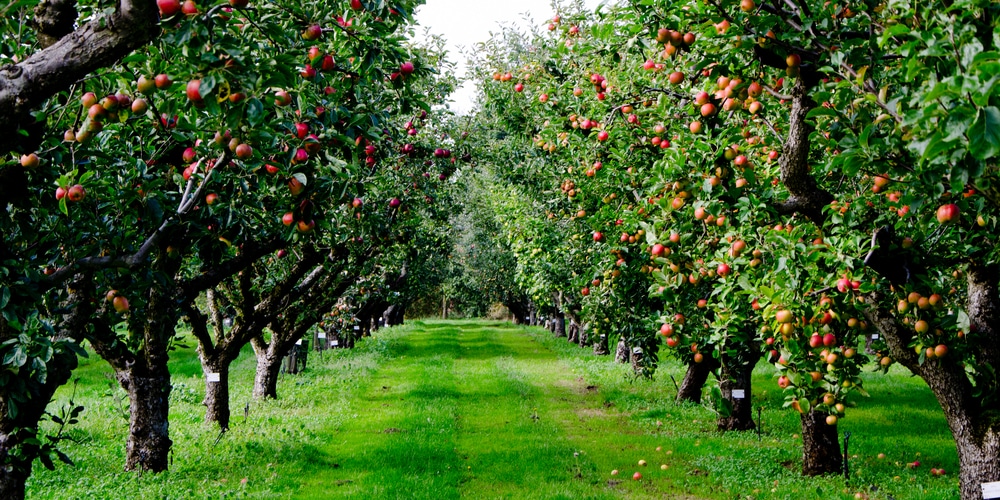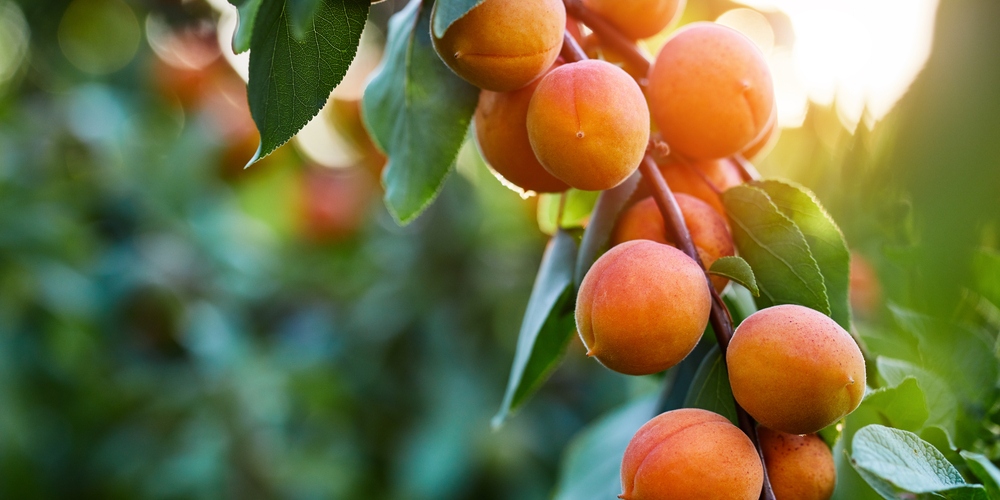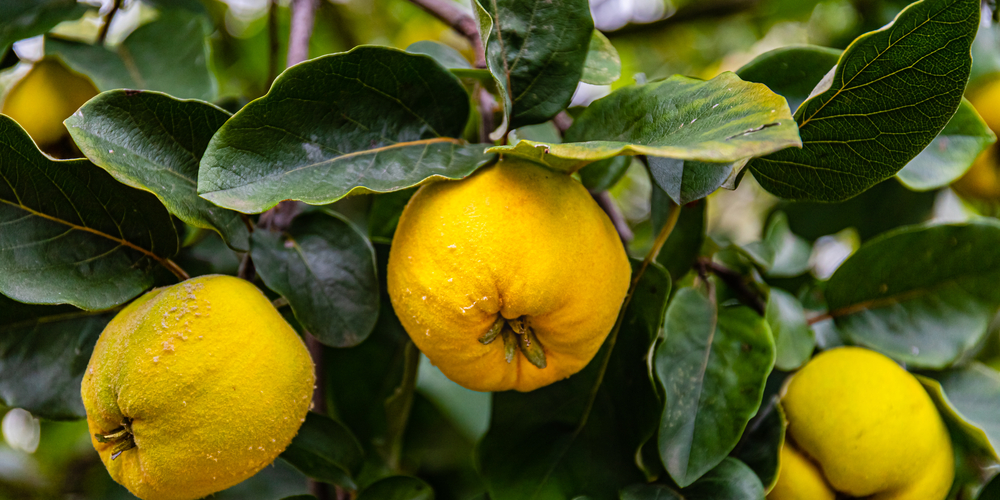Adding a fruit tree to your garden can improve the aesthetics of your property and provide you with home-grown crops. While the process of growing a fruit tree might be time-consuming, it can bring you plenty of satisfaction. However, to increase your chances of getting healthy crops, you must select fruit trees that will thrive in your hardiness zone. Indeed, attempting to plant a fruit tree that won’t grow well in your area can be discouraging. And no one likes that.
Luckily, there are plenty of zone 7b fruit trees you can choose to grow in your garden. Don’t forget that regardless of the tree you choose, you most likely have to ensure you can provide it with rich and well-draining soil. Also, you may have to keep an eye out for pests and diseases which might ruin your crops.
In this essential guide, we put together our favorite options. If you need some inspiration, here, you’ll find all you need to know about growing zone 7b fruit trees.
Apple Tree
Having an apple tree can improve the looks of your landscape. After all, there must be reasons why this crop is such a popular option for many homeowners. You can choose from many varieties of apple trees, most of them suitable for growing in zone 7b.
However, before planting one, you must consider the available space you have at your disposal: you may have to add more than one tree to ensure pollination. Also, you’ll need to provide your trees with full sun. We are talking about six hours of direct sunlight per day here. If you can’t provide them with that, consider another species for your garden.
Also, apple trees are heavy drinkers. You will have to water it frequently. However, if your soil is fertile, you won’t have to give them any fertilizer. Add some mulch around your tree’s base to improve water retention and increase the nutrient content in the soil. Finally, don’t forget to prune your tree annually to remove dead branches and improve airflow (which will minimize attacks from pests and diseases).
Apricot
Apricot trees need full sun and plenty of space to thrive. Apricot trees will give you delicious fruits and embellish your garden with stunning blooms during the spring. However, if you have pets, you may have to choose another fruit tree for your garden: apricot’s leaves, seeds, and stems are toxic to most animals, including humans.
The good news is that, like with apples, apricots don’t need fertilizer. During dry months, you may have to water your tree more frequently. The Sungold and Chinese varieties are the best suited for zone 7b, but you can also try planting Goldrich or Harflow for late blooms.
Cherry
Cherry thrive in zone 7b, which is good news if you like these delicious fruits. However, cherries are relatively challenging to grow and require some attention to thrive. Sweet cherries do not self-pollinate, so you will have to add more than one three to ensure fruit production. Plus, these trees need full sun and adequate airflow: avoid planting them too close to each other or a wall.
Instead, you’ll only need one tart cherry tree to get rich crops. Plus, this variety is less sensitive to heavy soils, making them the ideal option for clay grounds.
Before planting cherry trees in your garden, you have to do some research about chill hours. With short winters, you’ll have to look for low-chill cultivars. For 7b hardiness zones, Sweetheart and Tieton are the best options.
Peach
Peach is one of the most versatile trees you can add to your garden. For starters, they are self-pollinating, meaning you only need one tree to gather plenty of fruits. While most varieties require full sun, you can also find species that thrive in partial shade. Provided that you give your trees fertile soils and plenty of water, they will do fine in most conditions. In zone 7b, consider planting Goldprince and Topaz for the best results.
Quince
If you would like to grow something less traditional, we recommend you think about planting a quince tree in your garden. The fruit tastes something like apples and pears, and it is delicious in jams and jellies.
If you don’t have much space in your garden, this tree is an ideal option: they usually don’t grow more than 20 feet high. Unlike most trees we presented in this guide, quince will do well in heavy soils. However, you’ll need to protect them from wind, as they can be susceptible to wind damage.
Zone 7b Fruit Trees: The Bottom Line
When deciding to grow a tree in your garden, you must know which species will grow well in your hardiness zone. Don’t forget that you’ll still have to take soil quality, wind, and rainfall into account before planting one tree.
Related Article: Trees That Start with B: Trees From Around the World




